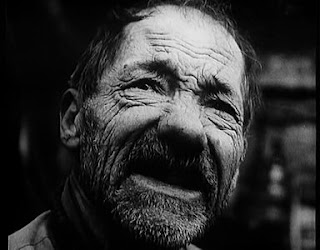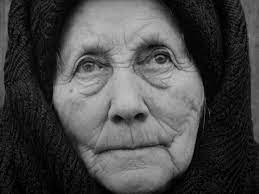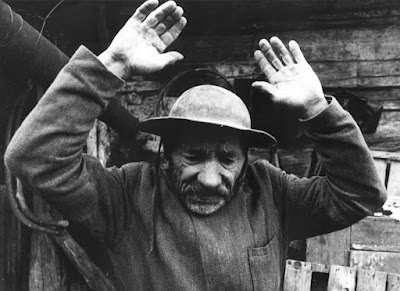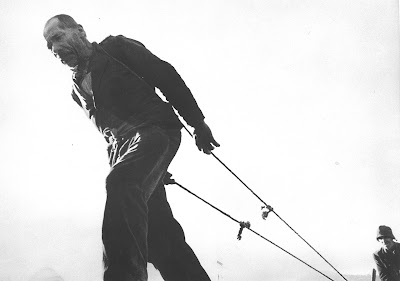Pictures of the Old
World
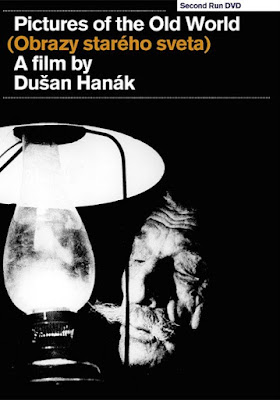
Director: Dusan Hanák
Year:
1972
Rating:
9.0
Country: Czechoslovakia
After reading this summary on IMDB, I figured how could I not watch this
film.
"Pictures of the Old World is an unquestioned masterpiece of European documentary
cinema, with existential radicalism that offers a contrast to the shallowness
of hundreds of other documentary films showing images from the outskirts
of civilization."
Ok - I am not really sure what the hell that means but after a little more
reading I discovered that in 2000 it was voted by Slovakian critics to be
the Best Slovak film of all time. Made in 1972 when Slovakia was part of
Czechoslovakia of course. It had been censored for seventeen years. Not for
its political content since it has none but for simply portraying life in
all its rags.
It is in fact a remarkable film though it takes a while to realize that.
It crawls into you and leaves a large echo of melancholy and wonder. I am
not sure why exactly. But it speaks so poignantly to mortality, loss, getting
old, nostalgia, loneliness. All the things that will catch up with us some
day should we live long enough. The director Dusan Hanák goes to a
rural area in the Tatra Mountains and interviews a number of elderly people.
All of them seem a day away from Death knocking on their door and most of
their teeth marched away a long time ago. Living on small bits of farmland
in two room homes where pictures of family and Christ make up their décor.
Dusan follows them around and records them going through their daily chores,
meals, reminisces of their past and thoughts about death. He mixes this up
with stunning black and white still photographs, music and their ancient
weather beaten worn out faces to create a collage of life.
There is the fellow who claims to be 100 and is still planting potatoes who
talks of going into the army in 1908, the woman who visits a graveyard and
leaves flowers for her dead husband, dead sister, dead child and a person
who used to say hi to her, the fellow who lost the use of his legs decades
before but drags himself around and works hard, the fellow who talks of how
much girls used to like him. Lastly is a fellow with the wonderful moustache
in the poster photo who talks of how much it hurt to lose his wife and how
much he still misses her. All of them are lonely, on the last leg of life
and it suddenly hits you that once they were young, they loved, they danced,
they had ambitions; they didn't expect it to end up like this - and also
that a version of this will be your life someday. At the same time they show
nothing but dignity and an acceptance of their fate. In fact, they laugh
at it. I hope I can be like that. He asks them what is valuable to you in
life. Most don't initially have an answer but eventually come back with children,
friends, religion. I thought my answer would be, my next breath.


